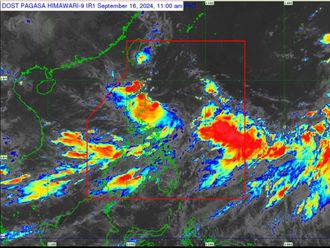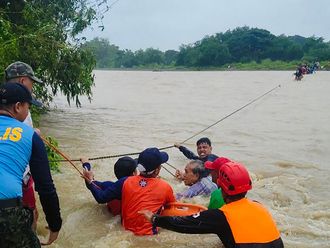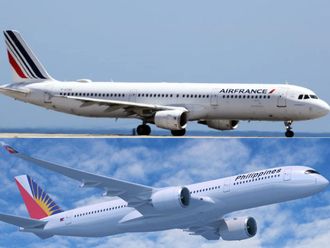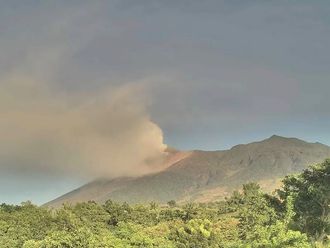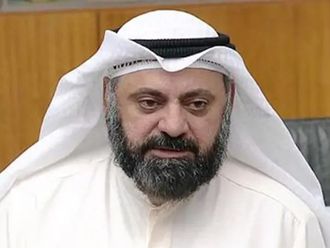
Manila: Philippine President Benigno Aquino has asked Congress to amend a law that covers the existence of a government agency that has been subsidising rice for the poor.
He said the government would instead subsidise more rice producers, and allow a government agency to more efficiently distribute local and imported rice at bargain prices for the poor.
In a letter asking senators and congressmen to amend the charter of the government-owned National Food Authority (NFA), Aquino said the Authority's budget should be cut.
He added that the budget of P4.2 billion pesos (Dh350 million) used to subsidise rice would be transferred to the social welfare department, which would be in charge of distributing price-protected rice to 4.6 million poor families.
In 2011, there would be no more direct rice subsidy, he said.
Instead, the government would shift to paying direct cash subsidies or conditional cash transfers (CCT) to farmers in the amount of P2.5 billion (Dh208.3 million), said Finance Secretary Cesar Purisima.
He added that almost half of the P8 billion (Dh700 million) direct rice subsidies would no longer be handled by the National Food Authority.
Government's rice subsidy of one peso for the poor has been costing the government between P5 and P8, Purisima said.
He added that this should end with the government's proposed plan to give cash instead to rice farmers who were being subsidised, and the poor who were being assisted with cheap rice.
Poor Filipinos live on one dollar a day.
Budget Secretary Florencio Abad said the new approach in social assistance would allow the government to support a total of 75 per cent of the country's 4.6 million poor people.
Abad said 84 per cent of rich people and only 16 per cent of poor people had taken advantage of the government's old form of rice subsidy. He said the figures were from international funding agencies.
Earlier, the World Bank said that the government's old rice subsidy program had covered only 27 per cent of poor Filipinos.
In reaction, National Food Authority administrator Lito Banayo said the government's plan would result in the abolition of NFA.
Warehouses of rice in three regions and more than 10 provinces would also be closed next year, he predicted.
Sen. Edgardo Angara said the government's proposed social assistance was "like stealing from the poor".
Sen. Francis Escudero said the government's plan for National Food Authority might result in revolution, with people lining up for rice.
Banayo said the La Nina weather phenomenon would result in a rice shortage and the government had limited its buffer supply of rice to 15 days instead of 30 days.
The National Food Authority has been in charge of importing rice and buying grains at a high price from local farmers.
The Philippines is the world's largest importer of rice. The National Food Authority has said it expected to import 1.8 million tonnes of rice this year. It imported 2.4 million tonnes of rice in 2009, a year after the global food crisis in 2008.


